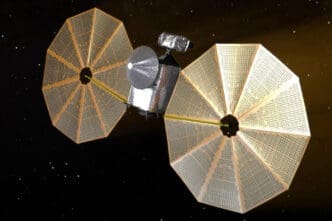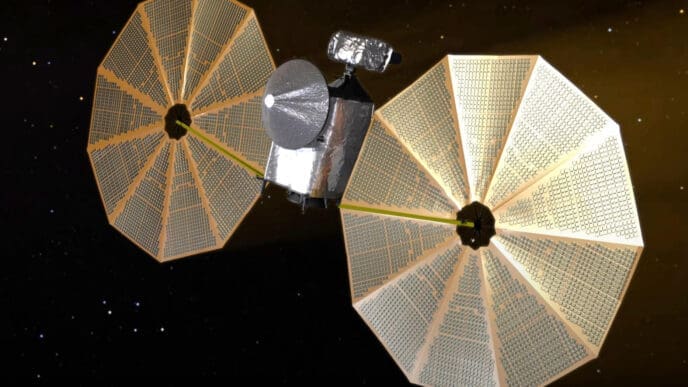Shanghai Gesi Aerospace Technology, better known as Genesat, has successfully secured over 1 billion yuan (~$137 million) in Series A+ funding to further its role in China’s ambitious Thousand Sails megaconstellation project.
In a significant development for China’s space industry, Genesat announced the completion of its funding round on December 30. This critical investment comes from a consortium of prominent backers, including China’s National Manufacturing Transformation and Upgrading Fund, China Development Bank Science and Technology Innovation, Guosheng Capital, SIMIC Capital, and Shanghai FTZ Fund. This funding is expected to bolster Genesat’s ongoing efforts in satellite development and production for the low Earth orbit (LEO) communications constellation.
GeneSat, established in 2022, is a collaboration shaped by the Chinese Academy of Sciences’ Innovation Academy for Microsatellites (IAMCAS) and Shanghai Spacecom Satellite Technology, known as Spacesail. The Thousand Sails project aims to construct a constellation of 14,000 satellites, aspiring to have approximately 600 satellites operational by the end of 2025. This initiative positions China as a formidable competitor to Starlink and other Western satellite communications entities.
Spacesail, previously part of the KLEO Connect Chinese-European collaboration, now leads the project on the Chinese side and currently has 56 satellites in orbit. These were deployed in 2024 across three separate launches aboard Long March 6A rockets, with Genesat at the helm of the second batch’s development.
The Thousand Sails effort is bolstered by strong support from the Shanghai government, highlighted by the Shanghai Action Plan to enhance commercial aerospace development. This initiative, running from 2023 to 2025, anticipates an annual production capacity of 50 commercial rockets and 600 satellites by 2025, establishing a significant infrastructure for space development.
The recent funding aligns with strategic moves by Chinese authorities to reinforce their commercial space activities. Earlier this month, the National Manufacturing Transformation and Upgrading Fund invested $123 million in a commercial launch startup, emphasizing government commitment to these endeavors. Meanwhile, the launch of the first satellites for the national Guowang megaconstellation marks another milestone, bringing China’s launch activities to a new peak with 68 attempts in 2024, launching over 260 satellites into orbit.
The infusion of substantial capital into Genesat underscores China’s strategic commitment to advancing its position in global satellite communications. As developments continue and launch activities intensify, China is well on its way to solidifying its presence in the competitive landscape of space exploration and satellite technology.
Source: Spacenews












